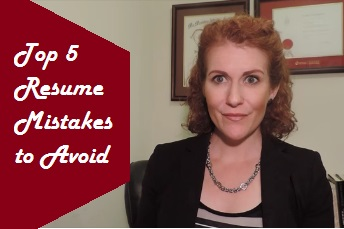Having spent nearly 20 years in the recruitment field, I have read thousands of resumes. Some of which had avoidable mistakes. I would see these resume mistakes as a reflection of the applicant’s attention to detail or lack thereof. Even now, as a recruitment coach and resume writer, I still see these common and avoidable mistakes.
Resume Mistakes
Your resume is your key piece of marketing material during your job search. The purpose of your resume is to tell your career story in the context of an organization’s current hiring needs. Even the most compelling career story won’t be heard in an interview unless these mistakes are avoided:
- Poor Spelling & Grammar – most word processing programs, like MS Word, have spell check and grammar check functionality. Unfortunately, it can miss a lot of key mistakes. As such, I would recommend that you have someone proofread your resume. In addition, there is an add-on for MS Word and Google Chrome that you can download called Grammarly. There is both a free and premium version. A third option is to use a resume writer to ensure that you are avoiding this and the following mistakes.
- Lack of Keywords – as mentioned in previous posts, it is critical that you include the keywords from the job ad in your resume. They key here is to ensure you pepper the keywords truthfully.
- Dishonesty – in my time in recruitment, I have seen a lot. That includes vastly different resumes submitted by the same person. I am not talking about tailoring your resume, which is important. Rather, seeing multiple versions of one person’s resume with different employers and/or employment dates listed. As with most things, honesty is the best policy.
- Poorly Formatted – sometimes people like to try to use different formats for their resume in an attempt to stand out. On the other hand, some may try to cram too much information on their resume, leaving very little white space on the page. Unfortunately, this causes more of a distraction for the reader and makes the resume more difficult to read. In essence, the resume stands out, but not in a good way. As such, it is best to avoid any “funky formats” or putting too much information on one page because a resume that is too hard to read might not get read.
- Length – there are few hard and fast rules when it comes to resume length. With the exception of MBA new grads applying to consulting roles, it is perfectly acceptable to have a two-page resume. As mentioned in the previous point, many times people will try to cram the information from a two-page resume into one page. Alternately, having a resume that is too long may not get read all the way through – especially on the first review. (As a side note, there is a difference between a CV and a resume. For more information, please review the accompanying video.)
Although this list isn’t exhaustive, by avoiding these mistakes and telling a compelling career story, you are well on your way to landing more interviews.
Final Thoughts
Your resume is a living document. By that I mean it can and should be revised and tailored for each role to which you apply. Keep in mind, as you update and/or tailor your resume, it is important that you have your resume proofread to ensure consistency and correctness with spelling and grammar.
I hope you found this post helpful. If you have any additional insights, or would like to share your experience, please do leave a comment below.
For personalized advice, check out my services here.
Until next time, happy hunting!


